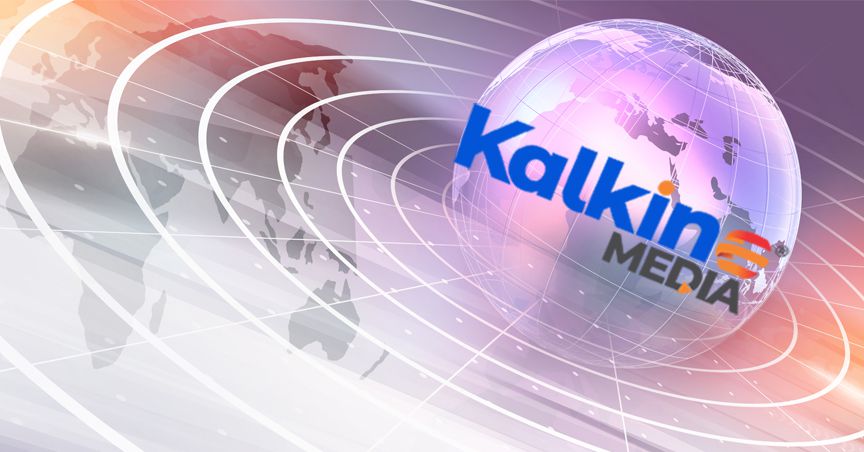Some of the prime factors propelling the factory automation market growth are technological advancements, increasing demand for efficiency and productivity, cost reduction initiatives, and the growing adoption of Industry 4.0 principles.
Factory automation refers to the industry segment focused on the integration of advanced technologies, such as industrial robotics, control systems, and software, to streamline and optimize industrial processes within manufacturing facilities. This encompasses the automation of tasks that were traditionally performed by human operators, aiming to enhance efficiency, productivity, and precision while reducing manual intervention. Factory automation solutions encompass a wide range of applications, from assembly and material handling to quality control and data analysis; ultimately enabling industries to achieve higher production rates, improved product quality, and cost savings.
The market is witnessing multiple collaborations and technological advancements, for instance in July 2023 Audi introduced the server-based factory automation system EC4P, enhancing worker support and data processing for vehicle production. EC4P eliminates industrial PCs, reducing malware risks and enabling flexible software integration. The technology optimizes resource use, speeds application deployment, and aims to expand its implementation to larger production sites by the end of 2023.
Access sample report or view details:
https://www.knowledge-sourcing.com/report/factory-automation-market
Based on type, the factory automation market is segmented into Sensor technology, motion and drives solutions, industrial control systems, manufacturing execution systems, software innovations, and other components. Among these, software innovation is witnessing rapid growth in the factory automation market. The integration of AI, data analytics, and predictive maintenance capabilities empowers manufacturers to extract insights from vast amounts of data generated by automation systems. This leads to proactive maintenance, reinsured downtime, and improved overall equipment effectiveness. Furthermore, software innovations enable the implementation of Industry 4.0 principles, allowing for seamless connectivity, real-time monitoring, and adaptive production processes. As the manufacturing landscape becomes increasingly digital, software-driven automation plays a pivotal role in driving efficiency, flexibility, and competitiveness in modern factories.
Based on industry verticals, the factory automation market has been segmented into the oil and gas sector, pharmaceutical industry, automotive field, energy and power domain, printing and packaging realm, chemical sector, manufacturing arena, and additional categories. Pharmaceutical factory automation is witnessing substantial growth driven by stringent quality and safety requirements, the need for precision in dosage and packaging, and the increasing demand for personalized medicine. Automation ensures consistent adherence to regulatory guidelines, reduces the risk of contamination, and accelerates production processes. Additionally, the pharmaceutical industry is adopting automation to address challenges posed by complex supply chains, diverse product lines, and the quest for innovation in drug development.
Based on geography, North America dominates the factory automation market owing to the region's advanced industrial infrastructure, technological innovations, and robust manufacturing base that creates a conducive environment for the adoption of automation solutions. Moreover, the push towards Industry 4.0, driven by the integration of IoT, AI, and data analytics, has spurred significant investments in smart manufacturing. The presence of major players in diverse industries, such as automotive, aerospace, and pharmaceuticals, further fuels the demand for automation to enhance efficiency and remain competitive. Additionally, North America's emphasis on operational excellence, regulatory compliance, and quality control aligns well with the benefits that automation offers, making it a prime driver of the market's growth and leadership in the region.
As a part of the report, the major players operating in the factory automation market that have been covered include Siemens AG, Honeywell International, Rockwell Automation, Schneider Electric, Ametek Inc, Emerson Process Management, Bosch Automation, General Electric, Johnson Controls, and ABB Ltd. among other significant market players.
The factory automation market analytics report segments the market as follows:
• By Type
o Sensors
o Motion & Drives
o Industrial Control System
o Manufacturing Execution Systems
o Software
o Others
• By Industry Vertical
o Oil and Gas
o Pharmaceutical
o Automotive
o Energy and Power
o Printing and Packaging
o Chemical
o Manufacturing
o Others
• By Geography
o North America
• United States
• Canada
• Mexico
o South America
• Brazil
• Argentina
• Others
o Europe
• United Kingdom
• Germany
• France
• Spain
• Italy
• Others
o Middle East and Africa
• Saudi Arabia
• UAE
• Israel
• Others
o Asia Pacific
• Japan
• China
• India
• South Korea
• Indonesia
• Thailand
• Others
Explore More Reports:
• Motion Control Market: https://www.knowledge-sourcing.com/report/motion-control-market
• Safety Motion Control Market: https://www.knowledge-sourcing.com/report/global-safety-motion-control-market
• Membrane Bioreactor (MBR) Market: https://www.knowledge-sourcing.com/report/membrane-bioreactor-mbr-market
Ankit Mishra
Knowledge Sourcing Intelligence
+1 850-250-1698
[email protected]
Visit us on social media:
Facebook
Twitter
LinkedIn



